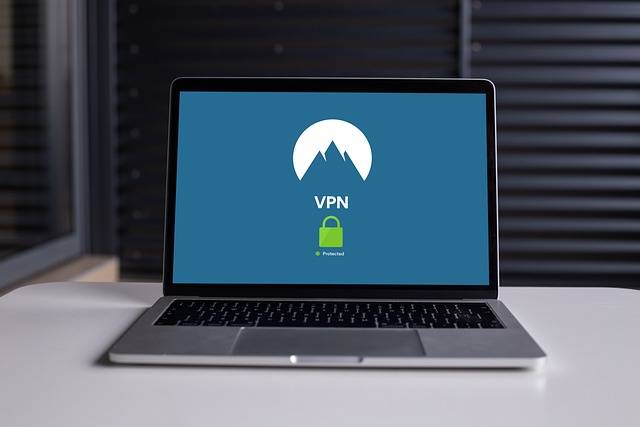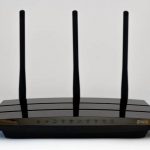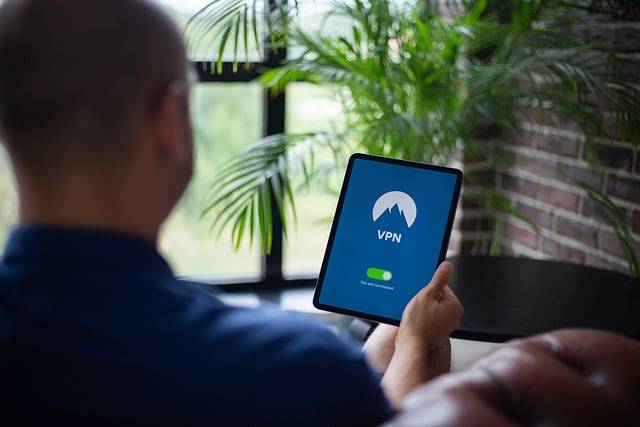Are you tired of your VPN connection constantly disconnecting? Do you find yourself having to reconnect multiple times a day or even more frequently?
If so, this blog article is for you. We’ll discuss the common causes of why your VPN keeps dropping the connection and provide troubleshooting tips to help resolve intermittent issues. Additionally, we’ll explore how network security can compromise your VPN stability and offer solutions for establishing stable connections that won’t let poor connectivity ruin your online privacy. Read on to learn more!
Table of contents: VPN Keeps Disconnecting
- How to Fix Your VPN Connection When It Keeps Disconnecting
- What Causes a VPN to Constantly Drop the Connection?
- Troubleshooting Tips for Resolving Intermittent VPN Issues
- Is Your Network Security Compromising Your VPN Stability?
- Don’t Let Poor Connectivity Ruin Your Online Privacy: Solutions for Stable VPN Connections
Having a Virtual Private Network (VPN) disconnecting from you can be incredibly frustrating. Not only does it disrupt your online activities, but it also leaves your data vulnerable to malicious actors. Fortunately, there are several steps you can take to prevent this from happening and ensure that your VPN remains connected at all times.
The first step is to check the server load of the VPN provider you’re using. If their servers are overloaded with too many users, they may not have enough resources for everyone and thus cause some users’ connections to drop out periodically. It’s best practice to switch providers if this is the case or upgrade your plan if possible so that you get access to more reliable servers with fewer people using them at any given time.
Another potential issue could be related to network congestion or interference from other devices in the area, such as Wi-Fi routers or Bluetooth speakers, which could interfere with your connection stability even when using a good quality VPN services provider like PureVPN.
To fix this problem, try changing channels on both 2G/3G/4G networks as well as Wi-Fi routers and see if that helps improve connectivity stability over time by reducing interference from other nearby devices operating on similar frequencies
Additionally, make sure that no firewall settings are blocking incoming traffic from reaching its destination while connected via a VPN connection since most firewalls will block certain ports used by these services for them to work properly without interruption
Finally, always keep an eye out for software updates released by both device manufacturers (such as Apple iOS ) and third-party applications like anti-virus programs which might interfere with how secure tunneling protocols function within their respective environments. Keeping everything up-to-date should help reduce any issues caused due technical incompatibilities between different versions of software running concurrently
By following these simple steps, one should be able to avoid common causes of why their VPN keeps disconnecting unexpectedly!
How to Fix Your VPN Connection When It Keeps Disconnecting

Are you having trouble with your VPN connection? Does it keep disconnecting, leaving you without access to the internet or other services?
If so, don’t worry – this is a common problem and there are some steps that can help fix it.
First of all, check your internet connection. Make sure that the router is properly connected to the modem and that both are working correctly. If not, try restarting them both and see if this helps resolve any issues.
You should also make sure that no other devices on your network are using too much bandwidth, as this could be causing problems with your VPN connection.
If these basic steps don’t work then it’s time to look into more advanced solutions, such as changing settings in your firewall or antivirus software which may be blocking certain connections from being established by the VPN service provider.
Additionally, if you’re using a wireless router, then try switching between different channels, as interference from nearby networks can cause problems with establishing secure connections over long distances.
Finally, if none of these solutions have worked, then contact customer support at whichever company provides your VPN service for further assistance in troubleshooting any potential technical issues they may be aware of, which could be causing disconnects on their end rather than yours!
What Causes a VPN to Constantly Drop the Connection?

When it comes to VPNs, a constantly dropping connection can be incredibly frustrating. After all, the whole point of using a VPN is to keep your data secure and private while you’re online.
So what causes this issue? There are several potential culprits that could be causing your VPN connection to drop out regularly. One common cause is an unstable internet connection on either end of the tunnel.
If either side has an unreliable or slow internet connection, this can lead to dropped connections as packets get lost in transit between them. Another possible cause is interference from other applications running on your device; these might be consuming too much bandwidth or otherwise disrupting the flow of traffic through the tunnel, which could result in disconnections.
Fortunately, there are steps you can take to try and fix these issues yourself before having to contact technical support for assistance: check that both ends have stable internet connections (ideally with no packet loss), close any unnecessary applications running on your device that might interfere with traffic flow through the tunnel, and make sure that any router settings required by your chosen provider have been properly configured before attempting another connection attempt.
Troubleshooting Tips for Resolving Intermittent VPN Issues
Troubleshooting intermittent VPN issues can be a tricky process, but there are some tips that can help you get to the root of the problem.
First and foremost, it’s important to identify what type of issue you’re experiencing: is your connection dropping out frequently, or is it simply slow? Once you’ve identified this, here are some troubleshooting steps to take:
1. Check your internet connection – Make sure that your internet connection is stable and reliable before attempting any other troubleshooting steps. If possible, try connecting with another device on the same network and using a different router if available.
2. Update software/firmware – Ensure that all relevant software (such as antivirus programs) and firmware (for routers) are up-to-date for them to work properly with each other without causing conflicts or errors which could affect performance or connectivity issues such as disconnects from VPNs intermittently.
3. Disable Firewall Settings – Temporarily disable any firewall settings on both ends of the VPN tunnel in order to rule out potential conflicts between them, which may be causing connection drops periodically throughout use time periods; also check for port forwarding rules set up by either party which might interfere with proper traffic flow over secure channels like those used by virtual private networks (VPN).
4. Check Network Bandwidth Usage – Monitor bandwidth usage during peak hours when most people would be connected at once; this will help determine if there’s an overload happening due to too many users accessing resources simultaneously, thus leading towards intermittent disconnections from remote servers hosting these services via their respective tunnels established through virtual private networks protocols such as OpenVPN & IPSec etcetera…
By following these simple tips above, hopefully, you’ll have better luck resolving any intermittent VPN issues that may arise!
Is Your Network Security Compromising Your VPN Stability?
When it comes to keeping your data secure, a Virtual Private Network (VPN) is one of the most reliable tools available. It encrypts all of your internet traffic and ensures that no one can access or monitor it without permission.
Unfortunately, if your network security isn’t up to par, this could compromise the stability of your VPN connection. A weak network security system can leave you vulnerable to cyberattacks such as malware and ransomware attacks which can disrupt or even disable a VPN connection.
If you don’t have strong firewalls in place or regularly update anti-virus software on all devices connected to the network then hackers may be able to gain access and interfere with any active connections from within the system itself. This means that even if you are using a high-quality VPN service provider, its effectiveness will still be compromised by poor overall security measures on the local area network (LAN).
To ensure maximum protection for yourself and anyone else who uses the same LAN as you do, make sure that all devices connected are running up-to-date antivirus software at all times; also consider investing in additional firewall hardware like routers with built-in firewalls for added protection against malicious activity online.
Additionally, always keep an eye out for any suspicious activity occurring on your LAN – if something doesn’t seem right, then take action immediately by disconnecting from public networks until further investigation has been carried out into what is happening behind closed doors!
Don’t Let Poor Connectivity Ruin Your Online Privacy: Solutions for Stable VPN Connections
Having a secure and private online experience is essential in today’s digital world. Unfortunately, poor connectivity can ruin your online privacy if you don’t take the right precautions.
A Virtual Private Network (VPN) is one of the most effective ways to protect your data from being accessed by third parties, but it won’t do much good if it keeps disconnecting or slowing down your connection. To ensure that you have a stable VPN connection and maintain optimal privacy protection, here are some solutions for avoiding poor connectivity:
1. Make sure that you have an up-to-date router with strong signal strength: Your router should be able to handle multiple devices connected at once without compromising speed or security. If possible, upgrade to a newer model with a better range and stronger signal strength so that all of your devices can stay connected even when they’re far away from the router itself.
2. Check for any potential interference sources: Interference from other wireless networks or electronic devices, such as microwaves, can cause disruptions in your connection which could lead to slower speeds or dropped connections altogether when using a VPN service provider. Try moving any interfering objects away from where you use the internet most often and see if this helps improve performance.
3. Use an Ethernet cable instead of Wi-Fi whenever possible: An Ethernet cable provides more reliable speeds than Wi-Fi because there’s less chance of interference, making it ideal for streaming video content over long distances. Plus, since no radio waves are involved, there’s also less risk of anyone else intercepting what you’re doing on the web.
4 Choose servers closer to home: The farther away a server is located geographically speaking, the longer latency times will be due to the distance traveled by data packets between points A & B – resulting in slower download/upload speeds overall. So try connecting through servers located closer geographically speaking – this should help reduce latency times significantly while improving overall performance as well!
5 Upgrade bandwidth capacity: If none of these tips seem like they’ll work, then consider upgrading bandwidth capacity on either end – both yours & provider’s side – depending on how many users are accessing resources simultaneously via the same account / IP address, etcetera … This way everyone gets their fair share & nobody has waited too long before getting access!








